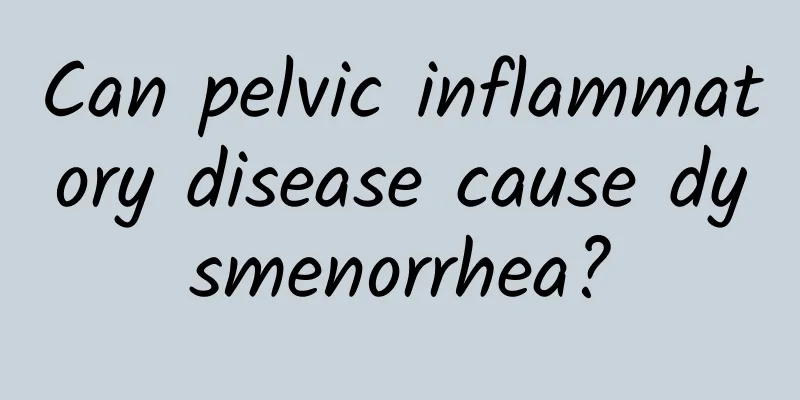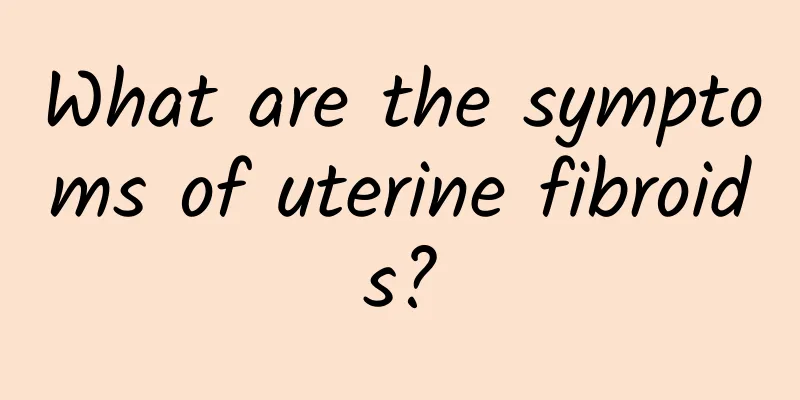Can pelvic inflammatory disease cause dysmenorrhea?

|
If pelvic inflammatory disease occurs, if it is acute, it may induce adverse symptoms such as dysmenorrhea, and usually occurs after the menstrual period. Pelvic inflammatory disease is very harmful, and patients are advised to seek early treatment while the condition is not serious, otherwise it will induce serious consequences such as infertility. In real life, due to the special physiological structure of women, it is easy to induce some gynecological inflammation, such as pelvic inflammatory disease, which causes serious harm to women's health and must be treated early. So, can pelvic inflammatory disease induce menstruation? Let's find out below! |
<<: Does pelvic inflammatory disease cause a low-grade fever? No obvious high fever
>>: Can I eat kelp if I have pelvic inflammatory disease? Remember not to eat it with tea
Recommend
Can vegetarians also cause fatty liver? Key point: Insufficient protein intake
Can a vegetarian diet also cause fatty liver? Thi...
5 factors that increase the risk of recurrence of candidal vaginitis
Candida vaginitis is caused by infection with Can...
Can recurrent miscarriage be treated with Chinese medicine?
Physical discomfort symptoms can be treated with ...
What if the menstrual flow is too little?
What if my menstrual flow is too little? Insuffic...
What is the probability of uterine fibroids becoming cancerous? What are the symptoms of uterine fibroids becoming cancerous?
What is the probability of uterine fibroids becom...
Let’s learn about the precautions for cervicitis
Women must do a good job of preventing cervicitis...
The most valuable auxiliary examination for threatened abortion
Every pregnant mother wants to give birth to a he...
What should I do if I have increased leucorrhea and vulvar itching?
What should I do if I have increased leucorrhea a...
What is the most important pre-abortion check?
Abortion is an operation that many young people w...
What should women eat during menopause?
On the one hand, menopause harms women's phys...
What are the symptoms of uterine fibroids?
What are the symptoms of uterine fibroids? Uterin...
What are the methods for diagnosing cervicitis?
If cervicitis is not treated actively, it is very...
What are the causes of ovulation bleeding?
What are the causes of ovulation bleeding? In fac...
What are the symptoms of mucopurulent cervicitis? What causes mucopurulent cervicitis?
Mucopurulent cervicitis is a relatively common gy...
Can I recover completely after intestinal atresia surgery?
Whether intestinal atresia can be fully recovered...









